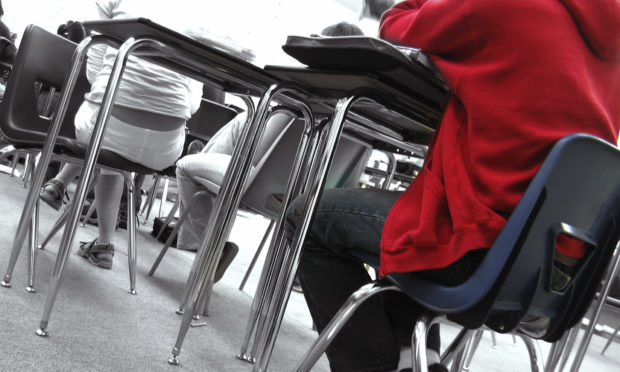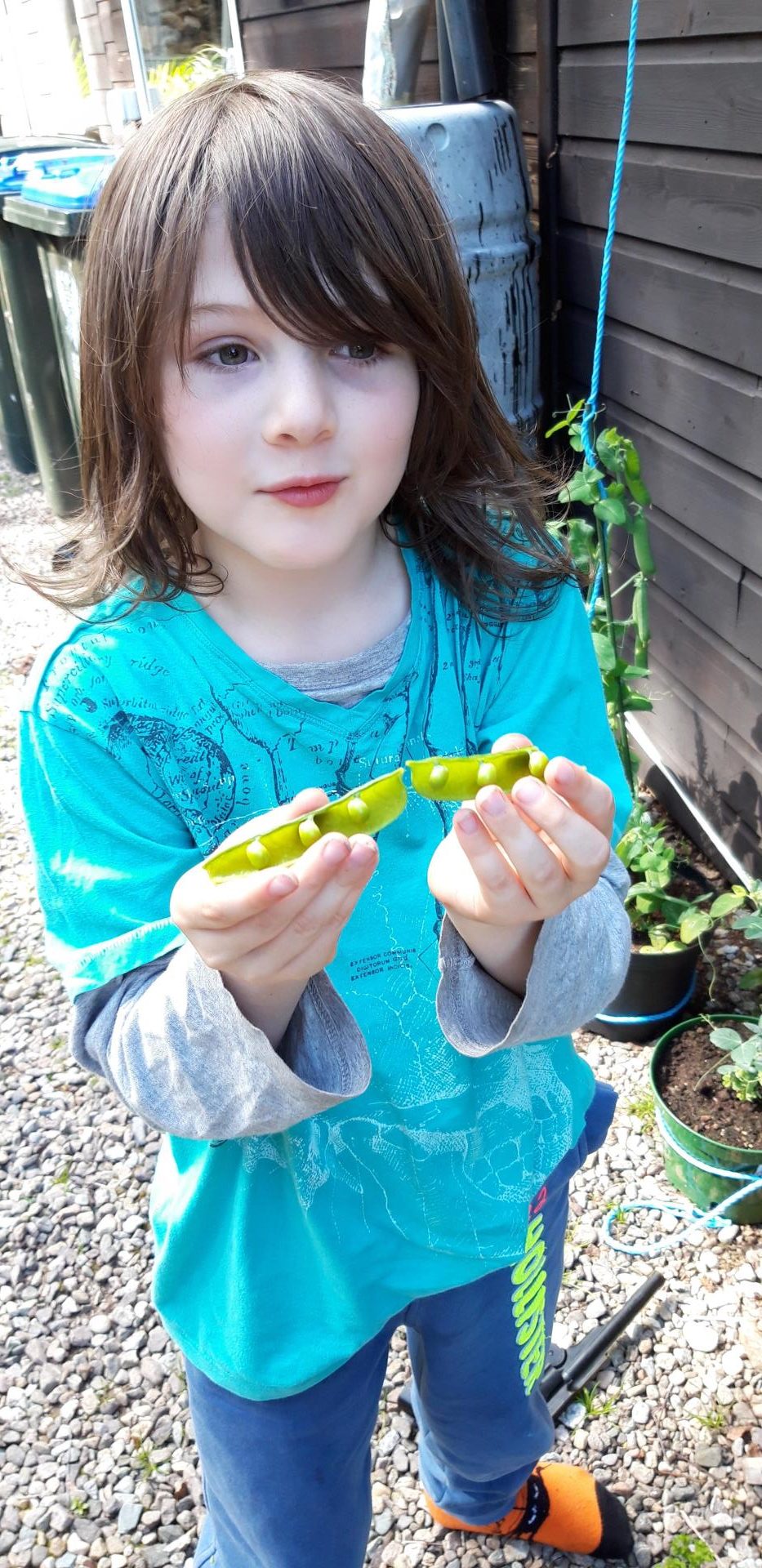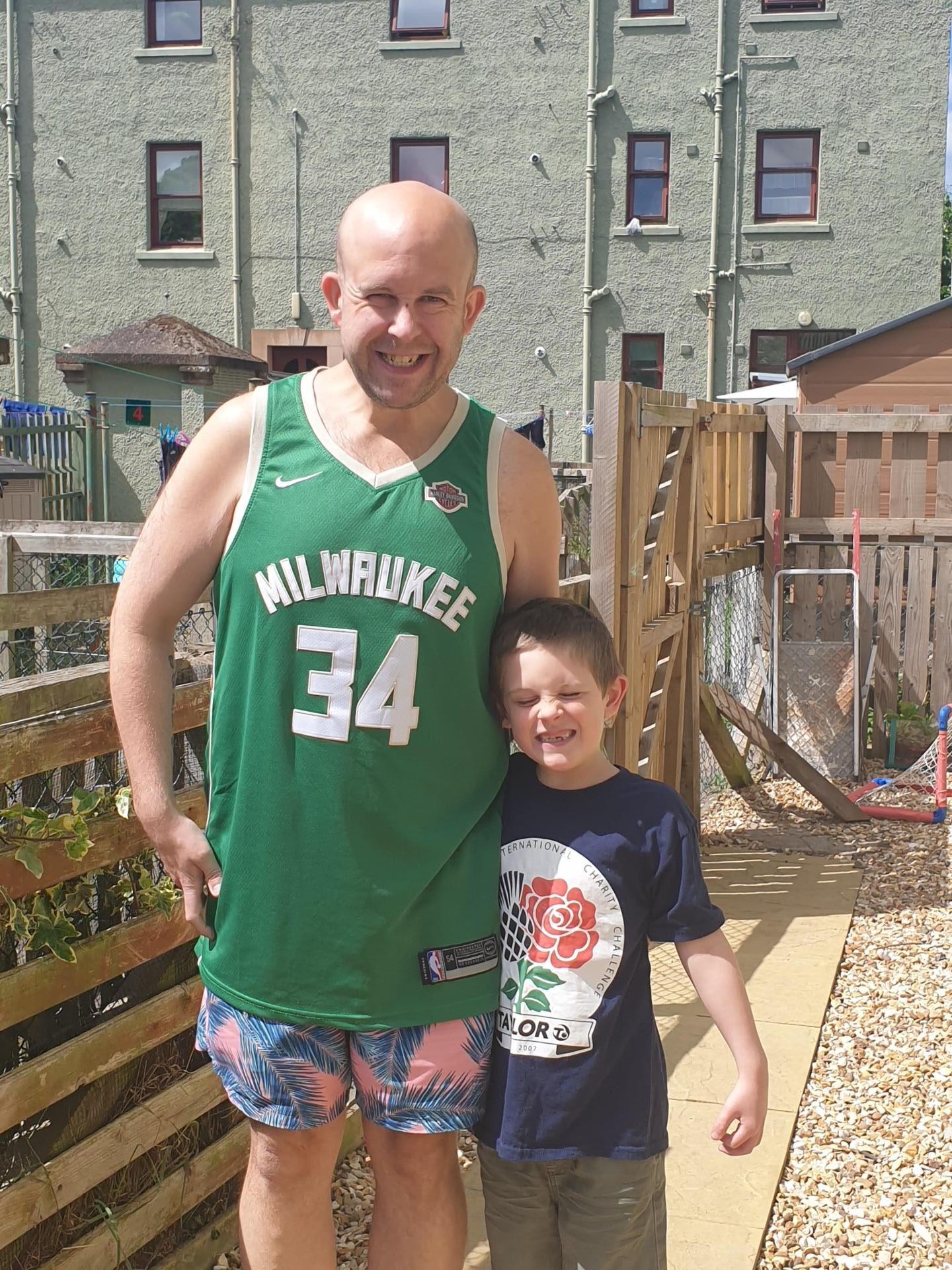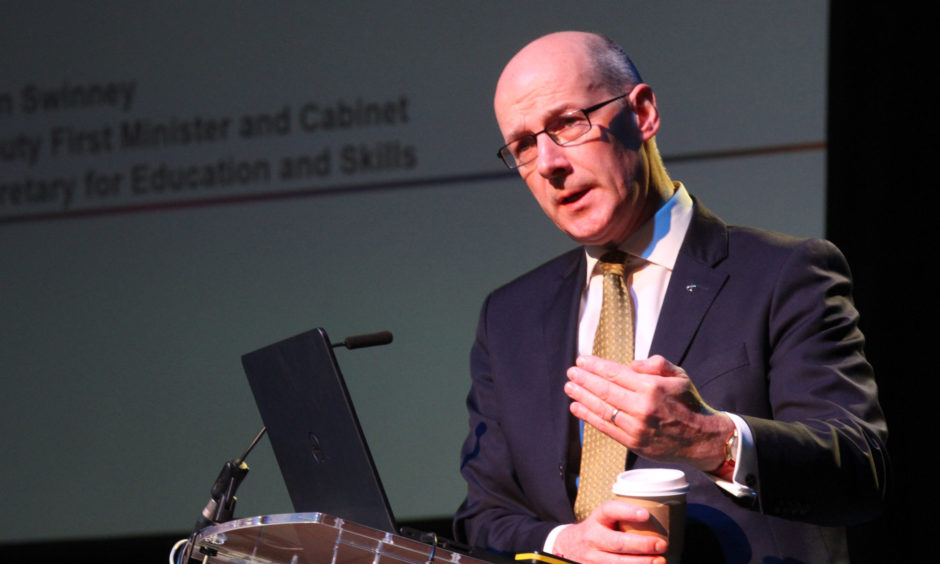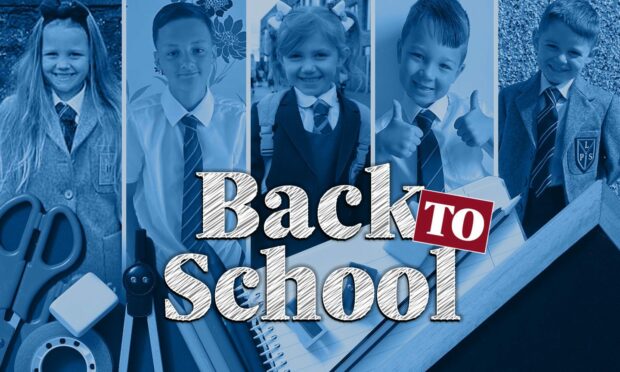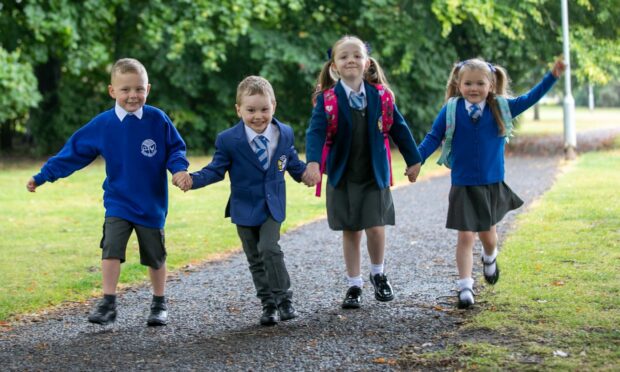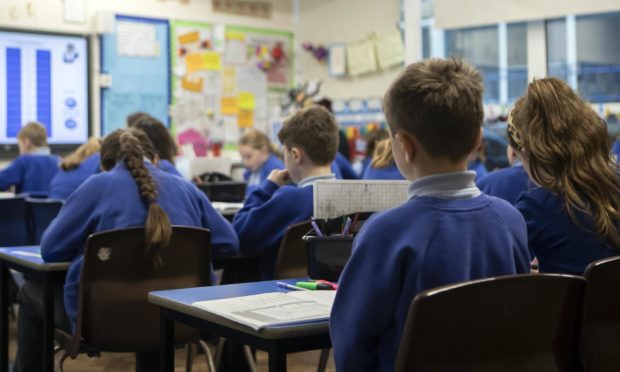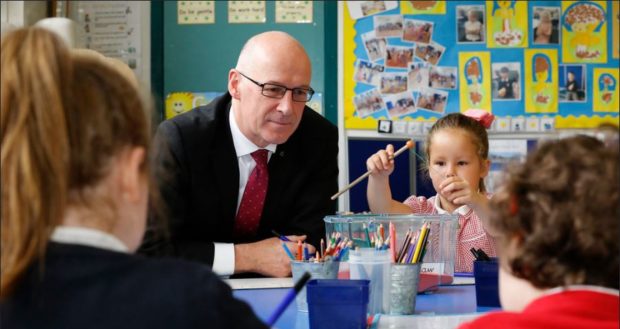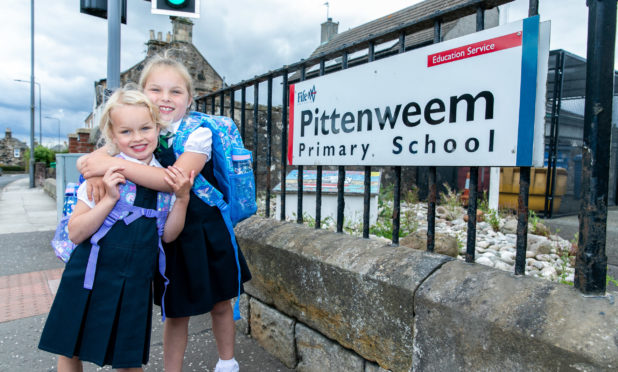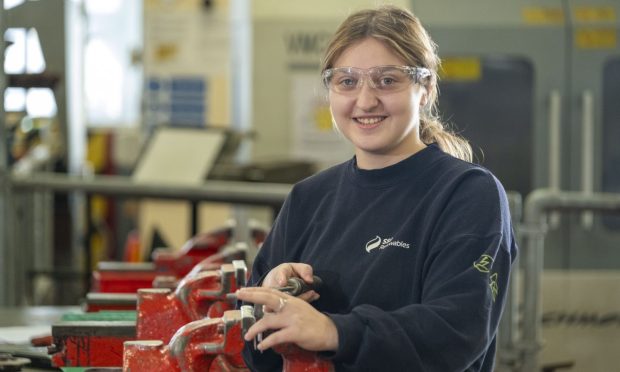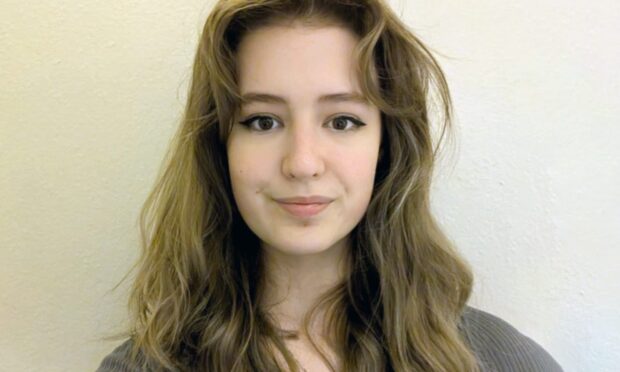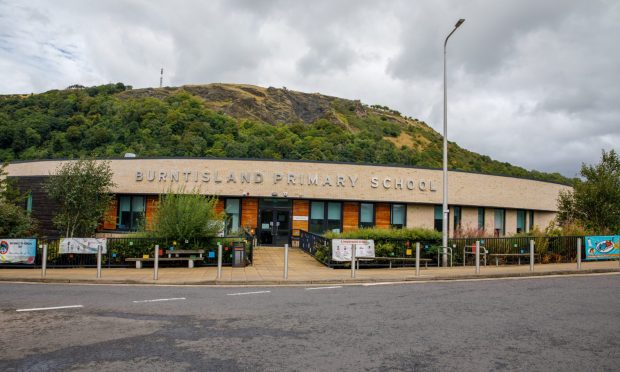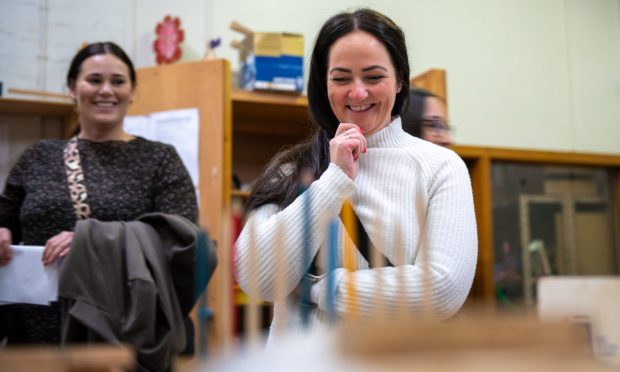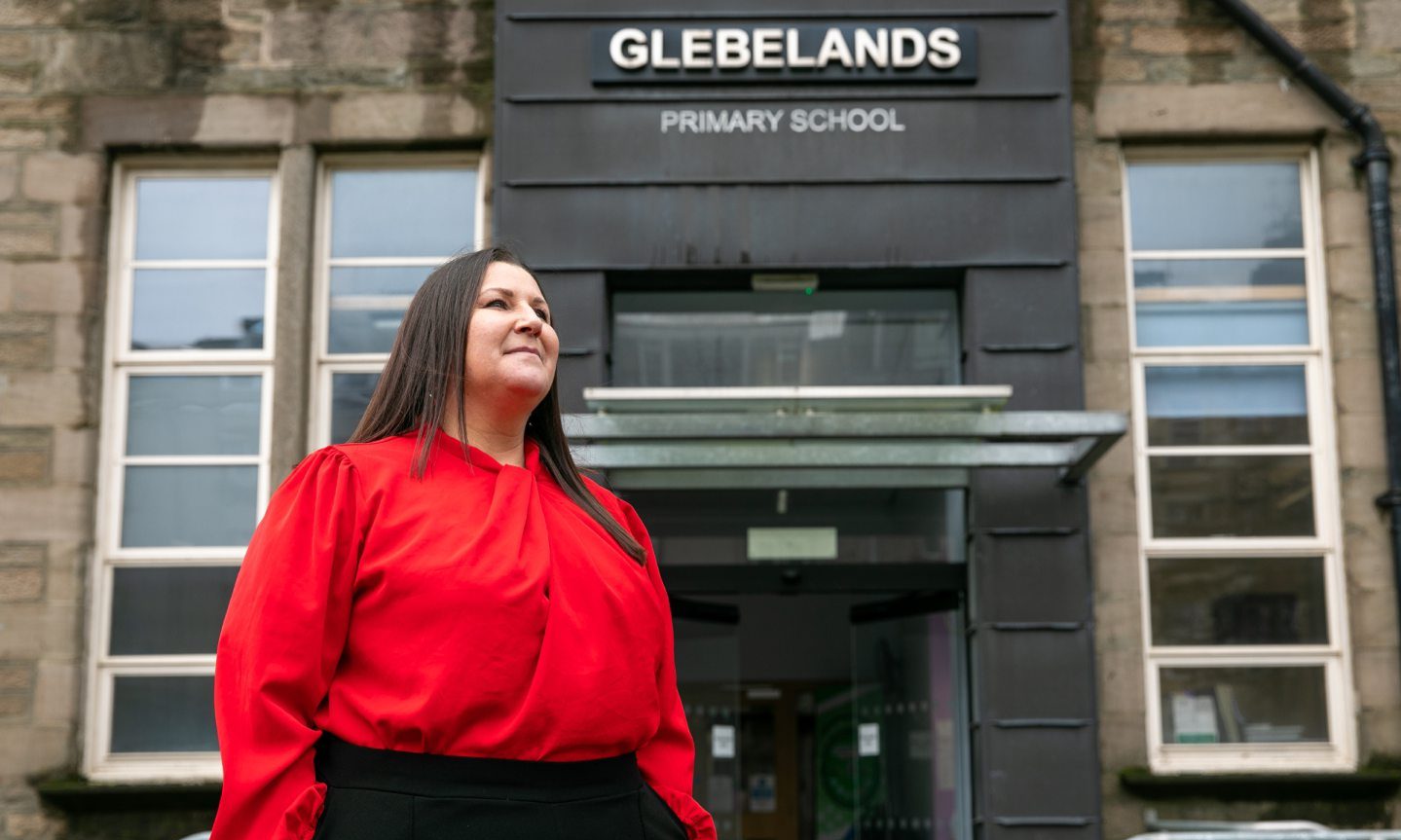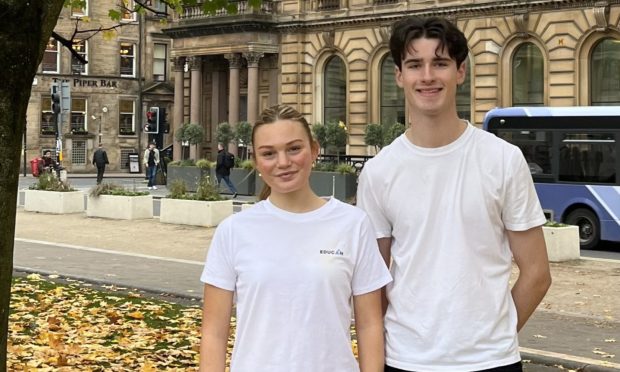The ‘one-size-fits-all approach’ to reopening schools has had a “detrimental impact” on children with additional support needs, according to parents.
last week, Education Secretary John Swinney told MSPs local authorities will develop transition plans for autistic children.
But many children across Tayside and Fife have not had any support and are anxious about changes as many schools are yet to set out concrete plans.
There are approximately 6,500 autistic children in Scotland and over a thousand receiving support across Tayside and Fife.
After months away from school, seven-year-old Angus Sutton is nervous about transitioning into P4 at Pitlochry High School.
His mother Ruth said she is pleased Mr Swinney has addressed challenges children with additional support needs (ASN) will face.
Teachers at Pitlochry have checked in regularly with Angus throughout lockdown and Ruth said she had been reassured they are developing transition plans.
But plans need to be developed as soon as possible. She said: “He doesn’t necessarily enjoy school so we have a wee bit of a concern about him going back. It’s been tough with conflicting information we’ve been given.
“We foolishly told him he was going back part time and then it was changed to full time so now we haven’t told him anything new until we know for sure.
“He finds transitions very difficult so normally getting him out of the house to school is very tough.”
Angus might struggle with small changes, such as seating plans and school meals, Ruth added.
One Fife mother, who wished to remain anonymous, said she feared her eight-year-old son will have suffered major setbacks as he struggled to adapt to home-learning.
She said Mr Swinney’s announcement was “passing the buck” as schools have very little time to put plans in place.
“When he started primary one he spent the first six weeks having to be taken in the door crying and sobbing. I am terrified that’s what’s ahead of me when they go back,” she said.
“I worry he’ll get quite distressed because it’s been so long since he’s been there. Some kids were able to go in and meet their new teachers before the holidays but we’ve not had anything at all.
“These plans should have been developed before the summer. I just want decision-makers to understand that one-size-fits-all planning doesn’t work for every child.”
Another said the lack of planning has led to a “detrimental impact” on her son as he had experienced anxiety over the possible changes.
However, some children, such as seven-year-old Taylor Thomas from Perth, enjoyed home-learning and has had great support from teachers.
Taylor will be going into P3 at Tulloch Primary School and has provision support classes half of the school week alongside mainstream classes. He has been able to meet his new teachers ahead of the summer holidays.
His mother Gemma said she is also waiting for concrete plans to be announced before telling Taylor he will be going back to school.
Like many autistic children, Taylor enjoys routine and has found many aspects of the pandemic scary.
“There’s a part of that worries he might get upset based on what the changes are so the sooner we know the sooner we’re able to start preparing him,” Gemma said.
“He has been quite afraid of face masks and feels uncomfortable around them to the point where when we’ve been out and wearing them he hasn’t wanted to hold our hand. He thinks by wearing one we must have coronavirus.
“We worry he might be scared of teachers who have to wear them in school at times but it’s about preparing them and we’ve been trying to reassure him which has helped.
“His teachers know how to help him if he does have a meltdown so as long as they’re able to continue those strategies with calming him down then I think he’ll be all right.”
National calls for ‘personalised transition plans’
The Scottish Government’s national autism implementation team have developed guidance for schools to support learners and said local councils should develop their own plans.
The National Autistic Society (NAS) has called on schools to ensure every learner has a unique transition plan.
This might include visits prior to school starting, more staff awareness, safe spaces, accessibility information and videos showing changes to layouts or rules.
Perth Autism Support have backed the calls to help children who struggle to adjust, particularly when transitioning into P1 or S1.
Angie Ferguson, chief executive officer for PAS, said: “Having an enhanced transition process is key to a good transition – time to end the chapter they are currently in and build small steps to moving into a new school with relationships in a managed and structured way to decrease anxiety and build confidence.
“These children have not had the chance to experience this carefully planned support and will make going back to school in August even harder if they’re not going back to the comfort of a familiar school environment.
“For every individual young person there will be an individual set of circumstances that needs supported in a different way. Whether they’re motivated to go back to school or not, there will be challenges for them and they will need to be supported to do this in the way that’s right for them at a time that is right for them.”
What are councils doing to support ASN pupils?
Councils across Tayside and Fife said they are taking steps to support vulnerable children.
However, little information has been revealed on how vulnerable pupils will be helped.
Following the government’s guidance, Dundee City Council said schools and nurseries will use their knowledge of ASN pupils to develop recovery plans and will be supporting families through any isseues caused by Covid-19.
Shelagh McLean, head of education at Fife Council, said she recognised the difficulties many pupils will experience.
“For those who are vulnerable and/or have significant barriers to their learning, targeting additional time and resources will increase opportunities for them to engage in a range of learning activities and provide them with further support,” she said.
“We know that our most vulnerable learners will include those most impacted by school closures and that these children/young people will require early and sustained additional support both in school or with learning at home.”
Support may include working alongside peers within their own class or planned group learning with pupils of different ages.
Perth and Kinross Council did not respond to our request for comment but staff from PAS have been liaising with the council’s Inclusion Team to guide decision-making through parent’s concerns.
Angus Council said schools have offered virtual school tours and transition visits were offered to parents by appointment.
